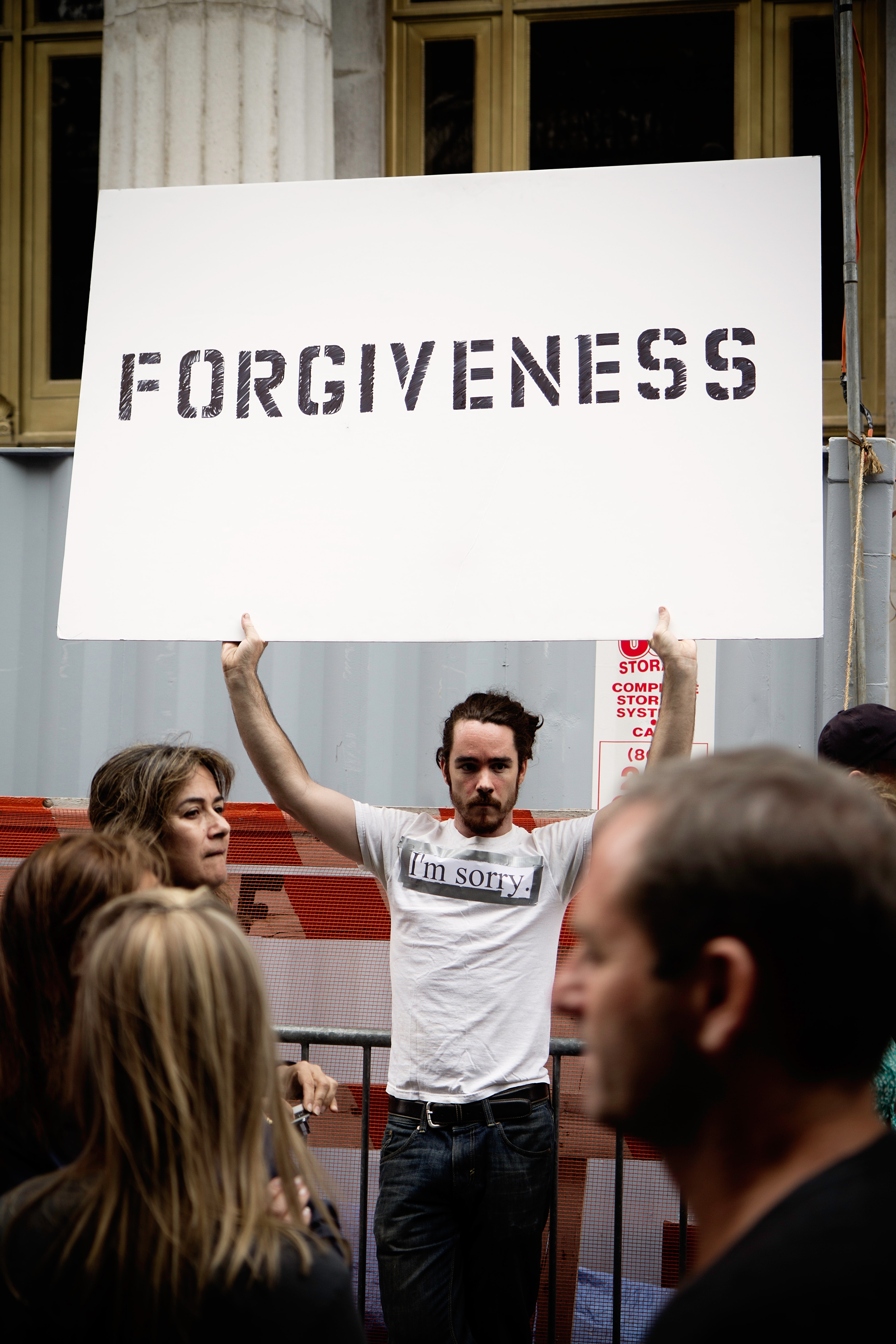So much of who we are today ties into our past experiences. Some of our memories are satisfying, while others, well… let’s just say they leave a bitter taste in our mouths. If someone else is responsible for causing the unpleasant moments that happen to us throughout our lives, we end up facing an intense internal battle of whether to move past the situation or place blame on the person, causing tension and, in some cases, dissolving relationships.
Forgiveness is crucial to building solid relationships and being a successful leader. But making a conscious decision to forgive someone, releasing those feelings of anger and resentment, can be a challenging feat. Many times, we say to ourselves we forgive; yet when we come face to face with the offender, reality hits. At that moment, we recognize our residual anger and resentment that remains even when we thought we had forgiven the other person. As leaders, we aren’t immune to the negative emotions that arise through a lack of forgiveness.
For many of us, forgiveness doesn’t come naturally. We have to learn to release people who have wronged us, and this doesn’t happen overnight. This is compounded when we feel that the person seeking our forgiveness is undeserving. Letting go of hurt and pain brought on by others is a process—one that is sometimes painful. Depending on the nature of the situation, we may even require years of therapy for complete healing and to truly move on.
Hanging on to hurt and pain is emotionally draining and robs you of joy. When we are unable to exonerate others for what they’ve done to us, whether intentionally or by mere human error, we live in bondage. This must be part of the “mental slavery” that the late Bob Marley spoke of when he said we must “emancipate ourselves from mental slavery as none but ourselves can free our minds.”
The power to live freely and independently is in our hands. We need not give this freedom over to others by allowing our nature to be changed or controlled by their actions.
On an episode of The Entrepreneurial You podcast, I spoke with forgiveness guide and coach Carolyn Jones on the subject on Overcoming Bitterness and Healing Through Forgiveness. I admit that prior to having this dialogue with Carolyn, I was somewhat uncertain about bringing this topic to the community of leaders whom I serve. Even during the editing process, I was very mindful of not wanting it to come across as overly soft. But after the episode went live and with the feedback I received, I realized many leaders are struggling with this issue and that it impacts the quality of their leadership.
During the conversation, Carolyn expressed, “Forgiveness doesn’t mean that you condone what the offender has done… when you decide to forgive, you make a decision to hurt and suffer less.”
Forgiveness is granted most authentically when we approach it from a place of empathy, knowing no one is perfect. Just as people have wronged us, we have wronged others—and surely we want others to pardon us for our misgivings. Therefore, we shouldn’t be too harsh on others when they hurt us. In the words of late English poet Alexander Pope, “To err is human; to forgive, divine.”
We all desire to live happy, healthy lives. Making a decision to hurt and suffer less has tremendous health benefits, and forgiveness is a key player in doing so. Studies show that forgiveness is associated with lower heart rates, lowering blood pressure and relieving stress. It allows us to truly live in the present moment with a sense of gratitude for the people in our lives.
As we extend forgiveness to others, we cannot overlook the other party who needs to be forgiven: ourselves. We may even find it easier to have compassion for others than to release ourselves from the blame or shame we’ve been carrying around all our lives.
As I navigate my own journey to wholeness, I came up with four concrete steps to aid the process of forgiving ourselves:
1. Check in with yourself and ask, “How am I feeling right now?
2. Get to the why: “Why am I feeling this way?”
3. If the feeling is negative, take it a step further. “What do I need to do to change the way I feel?”
4. Just do it! Now that you understand the why behind what’s been holding you back, forgive yourself.
Living in a state of anger brought on by hanging on to hurts inflicted by ourselves or others can make us defensive. Life is not meant to be lived that way. As leaders, we must practice the art of forgiveness; otherwise, we subconsciously project our baggage onto those we lead. The ripple effect can be insurmountable.
Do you need to forgive yourself or someone for something that has been eating away at you? Make a decision to do it today.
***This post was first published on the Leadercast Blog.


